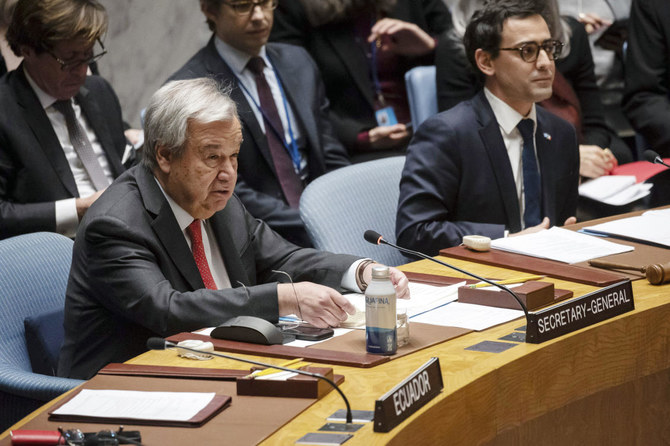Title: UN Chief Warns of Prolonged Conflict as Israel Rejects Two-State Solution
In a stern address at a ministerial meeting of the UN Security Council on Tuesday, UN Secretary-General Antonio Guterres cautioned Israel about the consequences of Prime Minister Benjamin Netanyahu’s rejection of a two-state solution. Guterres emphasized that such a stance could indefinitely extend the Israeli-Hamas conflict, posing a significant threat to global peace and providing a boost to extremists worldwide.
Guterres urged all parties to recognize the right of the Palestinian people to establish their own fully independent state, emphasizing that a refusal to accept the two-state solution must be firmly rejected. He warned against the alternative of a one-state solution, stating that having a large number of Palestinians without a real sense of freedom, rights, and dignity would be inconceivable.
Expressing concern about the escalating regional risks associated with the conflict, Guterres highlighted potential impacts on Lebanon, Yemen, Syria, Iraq, and Pakistan. He called on all parties to step back from the brink and consider the catastrophic costs of a broader war.
Netanyahu’s rejection of a Palestinian state after the conflict has strained relations with the United States, Israel’s closest ally, which advocates for negotiations leading to a two-state solution. Various countries reiterated their support for this goal during the ministerial meeting.
Saudi Deputy Minister of Foreign Affairs Waleed Elkhereiji emphasized the need for serious action to end the tragedy and halt the collective punishment against civilians in Gaza. He stressed that a lasting solution was crucial for peace and regional stability.
The article also reported on the humanitarian crisis, with the health ministry stating that at least 25,000 civilians, mostly children and women, have been killed. Representatives from different nations, including Pakistan, called for greater recognition of Palestine, while the United Arab Emirates’ ambassador urged an immediate humanitarian ceasefire in Gaza.
In response to the ongoing conflict, France’s foreign minister warned of the potential for a regional conflagration and called for unified messages to the warring parties. Turkey’s Foreign Minister questioned the argument that the war is about providing security for Israel, and Jordan’s Foreign Minister accused Israeli ministers of openly embracing an ideology of hate.
The article concluded with diverse perspectives on accountability, with some urging action against Israel for war crimes and blocking a Palestinian state, while others emphasized the need to address radical agendas and settler terrorism.

